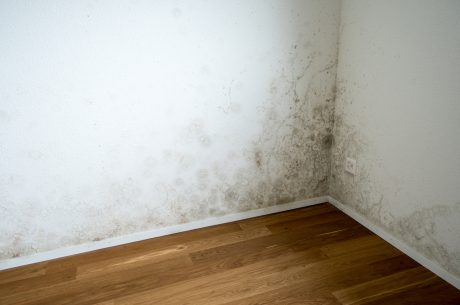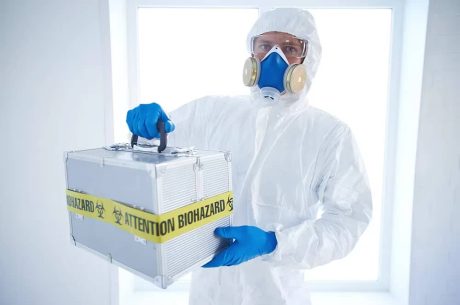In Orlando, the need for biohazard remediation services is essential due to various incidents that can occur, including crime scenes, accidents, and industrial spills. This comprehensive article will delve into the intricacies of biohazard remediation, covering its importance, types of biohazards, the remediation process, and how to choose the right company for your specific needs.
Understanding Biohazard Remediation
Biohazard remediation refers to the process of cleaning and restoring areas that have been contaminated by biological agents. This can include pathogens, toxins, and other hazardous materials that pose a risk to human health. Effective remediation is crucial for ensuring the safety of individuals and the community as a whole.
Definition of Biohazard Remediation
Biohazard remediation encompasses a range of procedures aimed at mitigating risks associated with biological hazards. These procedures typically involve specialized cleaning techniques, the use of personal protective equipment (PPE), and adherence to regulatory standards to safely remove contaminants.
Importance of Biohazard Remediation
The significance of biohazard remediation cannot be overstated. It plays a vital role in preventing the spread of diseases and contamination within the environment. Moreover, effective remediation helps restore property to a safe and usable condition, ensuring normalcy for individuals and communities affected by biohazard incidents.
Furthermore, timely biohazard cleanup can reduce potential legal liabilities and promote a sense of security among residents. As such, engaging a professional biohazard remediation company is critical after any incident involving hazardous materials.
In addition to the immediate health benefits, biohazard remediation also has long-term implications for public health and safety. For instance, areas that have been properly remediated can help prevent the resurgence of harmful bacteria or viruses that could lead to outbreaks. This is particularly important in settings such as hospitals, schools, and public spaces where vulnerable populations may be present. The thoroughness of the remediation process ensures that not only are visible contaminants removed, but also that microscopic threats are eliminated, thereby safeguarding the well-being of the community.
Moreover, the psychological impact of biohazard incidents can be profound. The presence of biological hazards can lead to anxiety and fear among residents, affecting their quality of life. A comprehensive remediation process not only addresses the physical dangers but also aids in restoring peace of mind. By ensuring that environments are thoroughly cleaned and deemed safe, communities can begin to heal and regain their sense of normalcy, fostering resilience in the face of adversity.
Types of Biohazards
Biohazards can be categorized into various types, each with its unique risks and requirements for remediation. Understanding these categories can aid in choosing the appropriate services for specific situations.
Biological Biohazards
Biological biohazards include pathogens such as bacteria, viruses, fungi, and parasites that can cause illnesses. Common sources may arise from medical waste disposal, sewage spills, or contamination from a crime scene. Proper handling and disposal are crucial to prevent potential outbreaks.
Chemical Biohazards
Chemical biohazards involve toxic substances that can pose significant risks to human health and the environment. Examples include industrial chemicals, heavy metals, and pesticides. These materials require careful assessment and remediation to ensure they do not enter the water supply or contaminate soil.
Physical Biohazards
Physical biohazards generally refer to damaging materials that can cause harm. Examples include sharp objects, broken glass, and any other debris that poses a physical risk. While they may not necessarily carry biological or chemical threats, physical hazards can result in injuries during cleanup efforts and require careful handling.
Biohazard Remediation Process
The biohazard remediation process involves a series of structured steps to ensure safe and effective cleanup. Here is a detailed overview of what this process typically entails.
Initial Assessment
The initial assessment is the first step in the biohazard remediation process. During this phase, trained professionals evaluate the scene to determine the extent of contamination and the appropriate steps for remediation. This assessment includes identifying the types of biohazards present and understanding the necessary safety protocols.
Based on the assessment, remediation companies can develop a tailored plan that addresses specific concerns and adheres to local regulations, ensuring comprehensive safety measures are in place throughout the cleanup process.
Biohazard Cleanup
After the assessment, the actual biohazard cleanup begins. This phase involves the safe removal of contaminated materials using appropriate techniques and equipment. Professionals typically employ specialized cleaning agents and disinfectants to ensure that all pathogens and hazardous materials are neutralized.
Additionally, workers will wear suitable PPE to protect themselves from exposure to potentially harmful substances. The entire cleanup process is executed with precision, enhancing safety for both the remediation team and the surrounding community.
Waste Disposal
The final step in the biohazard remediation process is waste disposal. All materials that have been removed must be disposed of in accordance with local and federal regulations. This often involves transporting hazardous waste to designated facilities that can handle such materials responsibly.
Proper disposal is not only a legal requirement but also an essential component of preventing future contamination and ensuring a safe environment for all.
Role of Orlando Biohazard Remediation Companies
Orlando biohazard remediation companies play a critical role in managing and mitigating the effects of hazardous incidents. Their expertise ensures safe and effective cleanup, significantly reducing risks to public health.
Services Offered
These companies typically offer a wide range of services, including crime scene cleanup, trauma scene cleanup, sewage cleanup, and hazardous material removal. Each service is tailored to meet the specific needs of the situation, governed by the types of biohazards involved.
In addition, many remediation companies provide consultation and support for legal matters arising from hazmat incidents, assisting clients in understanding their rights and obligations.
Safety Measures
Safety is paramount in biohazard remediation. Professional companies adhere strictly to safety protocols, including the use of PPE, containment procedures, and proper ventilation. Regular training and updates on safety standards ensure that staff remain aware and prepared for any challenges they might encounter during their work.
Moreover, by maintaining compliance with relevant regulations, these companies not only protect their workers but also safeguard the community from potential health hazards associated with biohazard incidents.
Choosing the Right Biohazard Remediation Company
When facing a biohazard situation, selecting the right remediation company is essential. The right choice can greatly influence the effectiveness of the cleanup and safety of the environment.
Factors to Consider
Several factors should be considered when choosing a biohazard remediation company, including:
- Certification and licensing
- Experience in handling specific types of biohazards
- Response time and availability
- Insurance coverage
- Reviews and testimonials from previous clients
Evaluating these factors can provide insight into the company’s professionalism and capability in managing biohazard situations effectively.
Questions to Ask
Before finalizing your decision, it is advisable to ask potential remediation companies several questions, such as:
- What protocols do you follow for biohazard cleanup?
- How do you ensure the safety of your team and the community?
- What are your disposal methods for hazardous waste?
- Can you provide references from past clients?
Asking these questions can help ensure that you make an informed choice, leading to a successful biohazard remediation experience.
If you’re dealing with the aftermath of a biohazard incident in Orlando, FL, you need a team that can handle the situation with expertise and care. PuroClean of Meadow Woods is ready to provide you with professional biohazard remediation services, ensuring your property is thoroughly cleaned and restored to safety. Our IICRC certified experts are equipped to manage water damage, fire restoration, mold remediation, and more. Don’t let the stress of biohazard cleanup overwhelm you; Contact Us Today and let us help you regain peace of mind with our reliable and efficient services.




 PuroClean of Meadow Woods
PuroClean of Meadow Woods